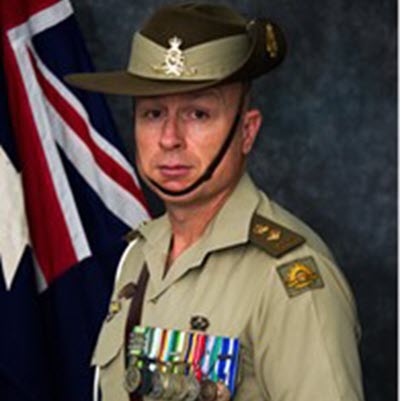Operational Design, Taming Wicked Problems, and Lawfare

Abstract:
This paper examines operational design as one aspect of a larger design-thinking domain. Design and designing are firmly established within the literature and describe those actions and endeavours associated with creating form and/or function—the object at the centre of the writers’ attention has a purpose and its purposefulness can be measured objectively. Operational design, on the other hand, is a relatively new term and is used within a military context to describe a form of operational planning that is more attentive to the inner subtleties of an area of interest and necessarily postpones the development of courses of action until after the subject has been thoroughly and comprehensively appreciated. It acknowledges the key characteristics of wickedness and messiness that also frustrate efforts to achieve outcomes in heavily contested social contexts—conflict. In these contexts, there is a rich presence of those who oppose, those who are neutral, and those who support—all must be attended to. Ultimately, all conflict is a clash of wills and a search for asymmetry; operational design and growing the practise of lawfare, therefore, aids the development, sequencing, and execution of least effort activities to achieve specified outcomes. The method presented does not seek to replace current military planning process; it does, however, offer a valuable companion method for situations of great complexity and ambiguity, where imaginative thinking, including the use of lawfare, may be appropriate.
AUTHORS

Edith Cowan University
Perth, Australia
Dr Guy Duczynski is a security professional with over 40 years’ military service in Special Operations. In addition to a PhD in operational design, he has an MBA and a Master’s of Education. He is an active researcher and publisher in a variety of subjects associated with information operations, influence activities, and operations in complex environments.

National Security Hub,
Canberra, Australia
University of Canberra,
Canberra, Australia
Sascha-Dominik Dov Bachmann is a Professor in Law at the University of Canberra and the Co-Convenor of its National Security Hub. He is a Fellow of NATO SHAPE Brussels as well as a Fellow of the Security Institute for Governance and Leadership in Africa, Faculty of Military Science, Stellenbosch University. He acted as NATO SME (Cyber and Rule of Law) for the 2011 Countering Hybrid Threats Experiment in Tallinn, Estonia and The Hague. He is also an extraordinary Reader in War Studies (docent) at the Swedish Defence University.

Department of Defence
Canberra, Australia
Lieutenant Colonel Matt Smith, DSM, assumed his current position as Divisional G5 this year. Prior to this appointment, he led strategies and concepts at Information Warfare Division and was the former Commanding Officer of Task Group Taji in November 2018. Prior to deployment, he was the Commanding Officer of 1st Regiment, Royal Australian Artillery (2017- 2018). He has also served in a variety of regimental roles within 4th Regiment, Royal Australian Artillery; instructional roles at the Royal Military College; and staff officer appointments in Headquarters 7th Combat Brigade, United Kingdom Defence Intelligence, and Defence Intelligence Organisation. Lieutenant Colonel Smith has undertaken operational service in Cambodia, East Timor, Afghanistan, and most recently in Iraq. Lieutenant Colonel Smith is a graduate of Australian Army Command and Staff College. He holds a master’s degree in Military Studies from the Australian National University, and a master’s degree in Justice of Strategic Intelligence from Queensland University of Technology.
Published In
Journal of Information Warfare
The definitive publication for the best and latest research and analysis on information warfare, information operations, and cyber crime. Available in traditional hard copy or online.
Quick Links
Archive

